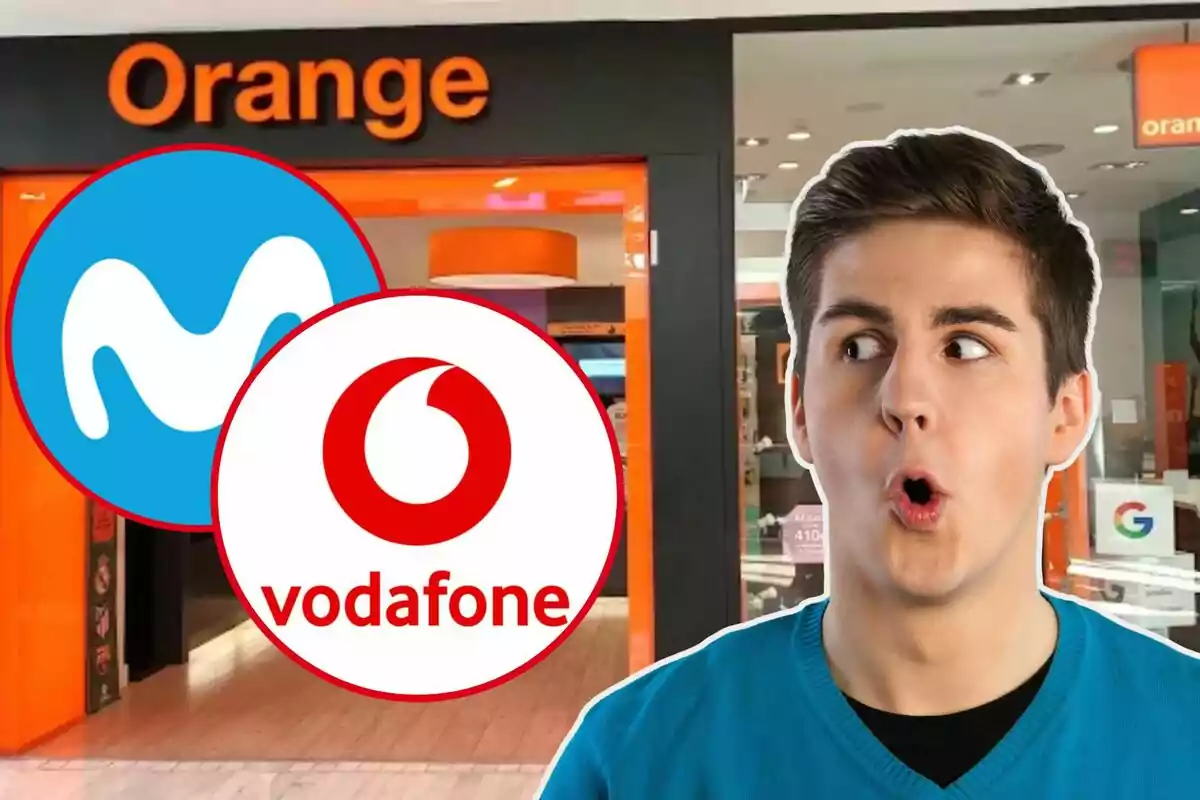
Cold water for Orange and Vodafone: this makes it impossible to compete against Movistar
Orange and Vodafone now face an unexpected problem that could significantly disrupt their accounts
The telecommunications landscape in Spain is going through challenging times for operators like Orange and Vodafone. Both companies are increasingly pessimistic about their chances of competing with Movistar, especially after the latest changes in Telefónica's management.
It has become clear that the Government has some influence over Movistar, causing rivals to tremble at what might come in the future.
The public services contract market is one of the major businesses for operators. Public contracts are essential for companies in the sector, as they represent a significant source of income.

However, Orange and Vodafone find it increasingly difficult to secure bids. They fear that the "Government interference" favors Movistar in these processes.
The advantage Movistar has
For many analysts, this change in Telefónica's leadership has further clarified the scenario. Movistar seems better positioned to secure public contracts. Sources close to Orange and Vodafone claim that the technical specifications of several contracts are already beginning to reflect a bias toward Telefónica.
These specifications include conditions that benefit Movistar, reports Vozpópuli, especially regarding the operator's technical capacity to carry out the work.
One of the key points in public contracts is the technical part, which evaluates the resources and operational capacity of the companies. In this regard, Movistar has a much broader and more developed infrastructure than its competitors. This places it in an advantageous position compared to Orange and Vodafone.
Public contracts, especially those related to providing services to public agencies, are vital for any operator. If the Government continues designing the specifications to favor Telefónica, the chances of Orange and Vodafone securing these bids decrease.

What are the consequences of this situation for Orange and Vodafone?
The current situation creates great uncertainty for both companies. While they still maintain a good customer base, the public contracts business represents a key opportunity, especially to ensure their financial viability in the near future.
With Movistar's growing advantage in these processes, Orange and Vodafone know it will be much more challenging to remain competitive. They must not only face Movistar's technical advantage but also the perception that government decisions are clearly tilted toward the dominant operator in the market.
The future of telecommunications in Spain
With this outlook, the telecommunications market in Spain could become even more polarized, favoring Movistar over its rivals. The future prospects are not encouraging for Orange and Vodafone, as they see public contracts slipping away due to policies that seem to benefit Telefónica.
Meanwhile, Movistar enjoys a dominant position thanks to its superior infrastructure and the implicit support of government policies, making any attempt to unseat it almost impossible for now.
More posts: